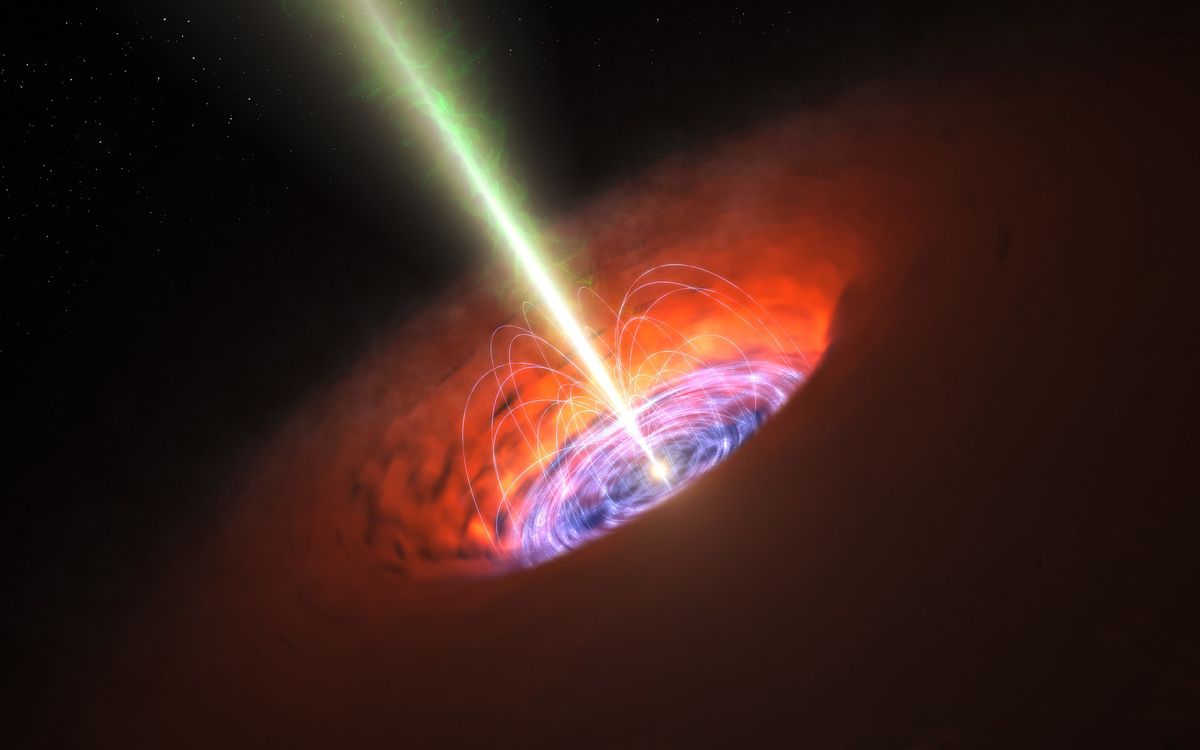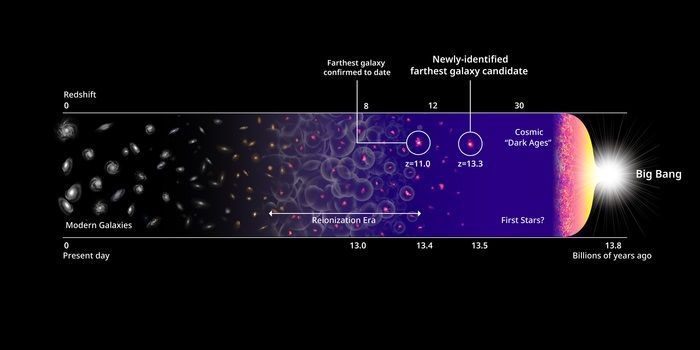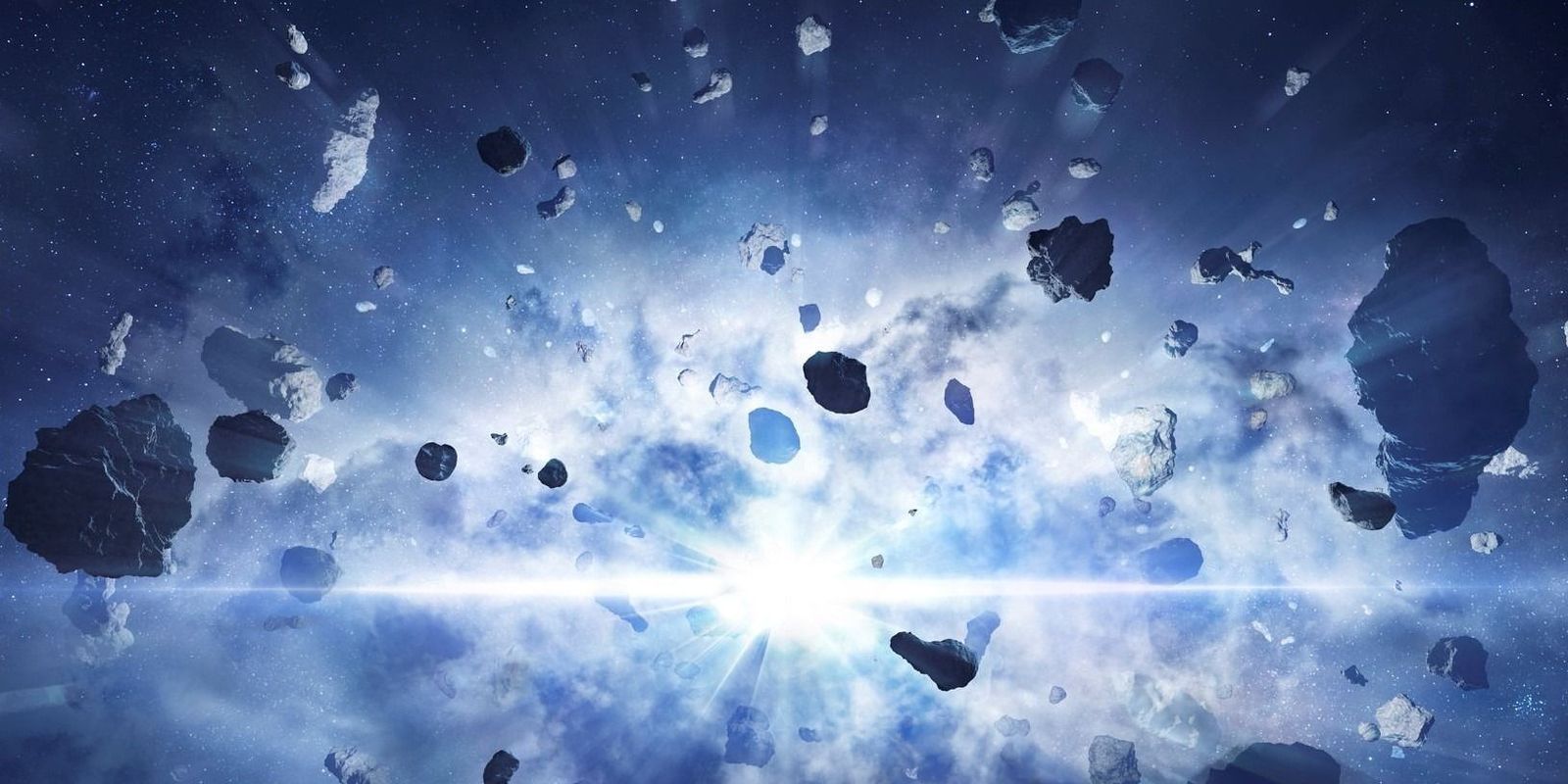When did the universe originate according to the Big Bang theory?
If we accept as a starting point that the universe as we know it arose as a result of the Big Bang, then we must immediately ask the question of what was created and what came before it. The time of the big bang – The so-called Hubble time – It can now be calculated with relatively high precision, which is about 13.8 billion years. (To clarify the time scale, the Sun and the Solar System formed about 5.5 billion years ago.) The term big bang is applied in a narrower sense to the time when the observed expansion of the universe began.
Image: NASA/Headquarters/Wikimedia Commons
At the zero moment of Hubble time, that is, at the beginning of time, the matter that makes up the known universe was concentrated in one point, which is called the gravitational singularity. This condition is incomprehensible with ordinary thinking. In this super-hot state, there are infinite quantities independent of the model describing the gravitational field, so mass and gravity become infinite. Ironically, in the cosmological model of the Big Bang, or more precisely in the Big Bang Singularity, the density of the universe and the curvature of space-time were infinite. (The gravitational singularity itself was predicted by Albert Einstein's general theory of relativity. The curvature of spacetime became infinite in Black hole It also occurs beyond the event horizon for objects with extreme mass and density, as well as extreme gravity.)

Image: Wikimedia Commons
The really difficult question comes only after that: If the universe emerged from the Big Bang singularity 13.8 billion years ago, what existed before the Big Bang? It follows from Einstein's theory that neither space nor time could exist before the Big Bang. On the other hand, it was indeed a basic philosophical assumption of the ancient Greek philosophers that nothing could arise from nothing.
But what happened before the Big Bang?
Therefore, no one knows what happened before the Big Bang, only theoretical speculation exists. One of them is the most famous Stephen Hawking The so-called non-limitation hypothesis. According to the world-famous theoretical physicist, the boundary condition of the universe is that it has no boundaries. Hawking explains this by saying that Euclidean spacetime is a closed, infinite surface like the surface of a spherical Earth:
We can say that imaginary time and real time begin at the South Pole, a point in space-time to which the laws of ordinary physics apply. There is nothing south of the South Pole, so there was nothing before the Big Bang.
– thought the famous scientist. According to the analogy, just as the Earth has a point in the extreme south, time also has a beginning, and if the Earth does not end at the South Pole, then time does not disappear if we trace it back to the beginning. According to Hawking, time was curved before the Big Bang, and the further back we go, the closer time gets to nothing, but it never becomes nothing.

Photo: Heavy.com
Hawking believes that the world evolved from the Big Bang regardless of what happened before it. “The events that preceded the Big Bang have simply not been determined, because there is no way to measure what happened afterward,” declared one of the greatest theoretical physicists of the twentieth century.
But this still does not provide a clear theoretical answer to what happened before moment zero if time did not exist.
Gauri Shankar Gupta, an Indian Big Bang skeptic, summarized the essence of this unanswerable problem in a 2017 article:Each idea is based on the premise that something existed before the Big Bang, and then gradually exploded, expanded, or evolved. At the same time, there is no plausible explanation for the creation of the matter that makes up the universe and how it got here at all. Since nothing can be created from nothing, the universe cannot be created from nothing either.

Image: NASA/JPL-Caltech
Scientists also have no accepted answer as to how millions of natural influences and forces created the right conditions for life to evolve. Finally, only 4.6% of the universe's mass is observable matter, so what to do with more than 95% consisting of dark matter and dark energy; Should we ignore it?Some scholars, including Francis S. Collins, to a theological interpretation of the “final great question.” These approaches – since nothing can come from nothing – favor the creationist theological view, according to which “the only self-existent and immortal entity”, i.e. God alone, can create something out of nothing (ex nihilo), the world. Asking what might have been before the Big Bang makes the limits of science as clear as possible. Everything that points beyond this is rather a matter for the realm of faith.












































